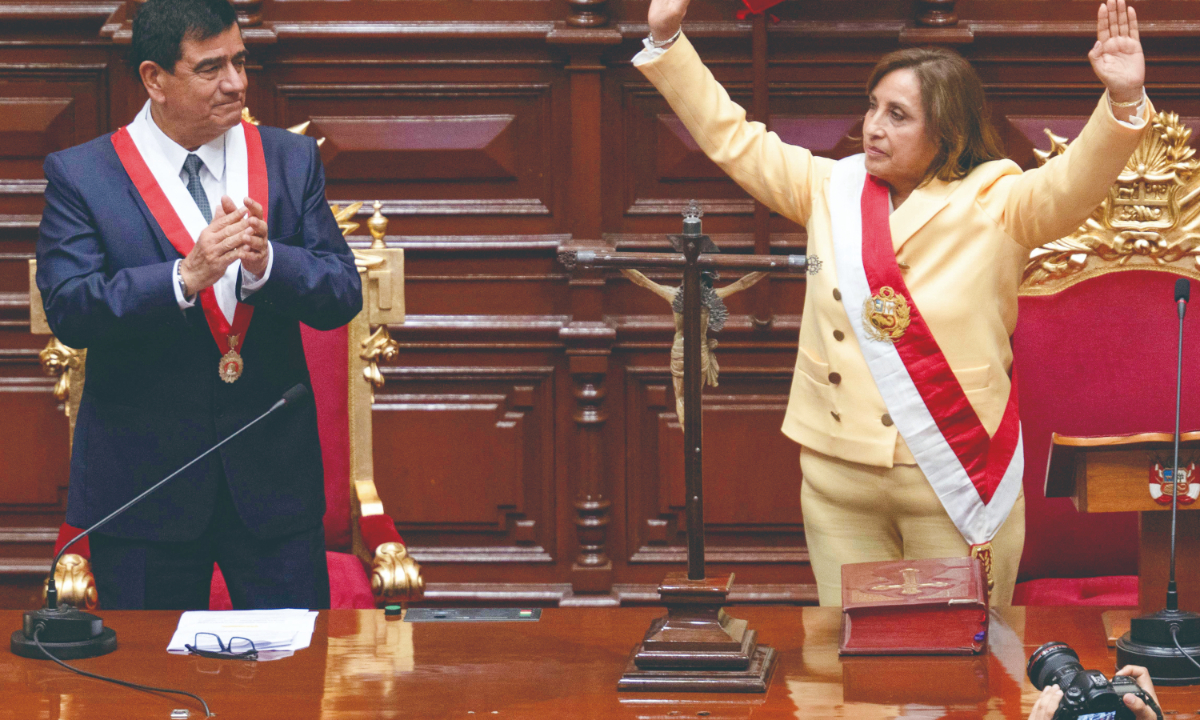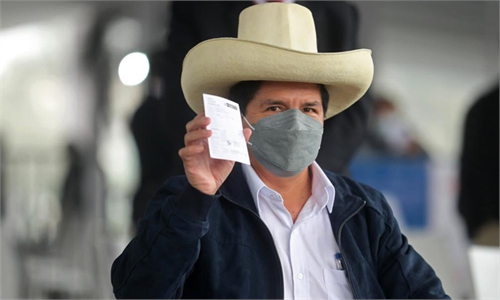
Dina Boluarte (right) greets members of the Congress after being sworn in as the new Peruvian president hours after former president Pedro Castillo was impeached in Lima, Peru, on December 7, 2022. Photo: VCG
Dina Boluarte was virtually unknown on the Peruvian political scene a year and a half ago, when she rode into office in July 2021 as Pedro Castillo's vice president.
But on Wednesday she made history, becoming Peru's first female president after Castillo was ousted from office amid an attempt to avoid an impeachment vote by dissolving Congress and ruling by decree.
A 60-year-old lawyer and mother, Boluarte became one of the Castillo government's best-known faces due to her position as Minister of Development and Social Inclusion, a post she held simultaneously with the vice presidency up until two weeks ago.
Castillo, who after being removed from office on Wednesday was detained on charges of rebellion, had sidelined Boluarte from his latest cabinet reshuffle, the fifth of his short presidency.
"She has the profile of a fighting woman," said Congresswoman Sigrid Bazan of the new president.
In July, Boluarte said she was willing to assume the office of president and even finish the term that runs until 2026, if Castillo, who was under investigation for corruption by the prosecutor's office, was removed.
"There is a mandate that the people have given us, to govern for five years, and that is the only agenda we have. To work these remaining four years for the most vulnerable, the most needy," she said. Boluarte said that Castillo has repeatedly denied to her having committed any act of corruption.
Television outlets showed Castillo leaving a police station and reported he would be moved to a police-run prison.
Castillo earlier had said he would temporarily shut down Congress, launch a "government of exception," and call for new legislative elections.
That sparked resignations by his ministers amid angry accusations from both opposition politicians and his allies that he was attempting a coup. The police and armed forces warned him that the route he had taken to try to dissolve Congress was unconstitutional and the police said they had "intervened" to fulfill their duties.
Some small street protests took place. In Lima, dozens of people waving Peruvian flags cheered Castillo's downfall, while elsewhere in the capital and in the city of Arequipa his supporters marched and clashed with police. One held a sign saying: "Pedro, the people are with you."
Police officers were deployed around the Government Palace and Congress in Lima, which were surrounded by metal barricades.
Peru has gone through years of political turmoil, with multiple leaders accused of corruption, frequent impeachment attempts, and presidential terms cut short.
The latest legal battle began in October, when the prosecutor's office filed a constitutional complaint against Castillo for allegedly leading "a criminal organization" to profit from state contracts and for obstructing investigations.
Castillo has called the allegations "slander" by groups seeking "to take advantage and seize the power that the people took from them at the polls."
Agencies

